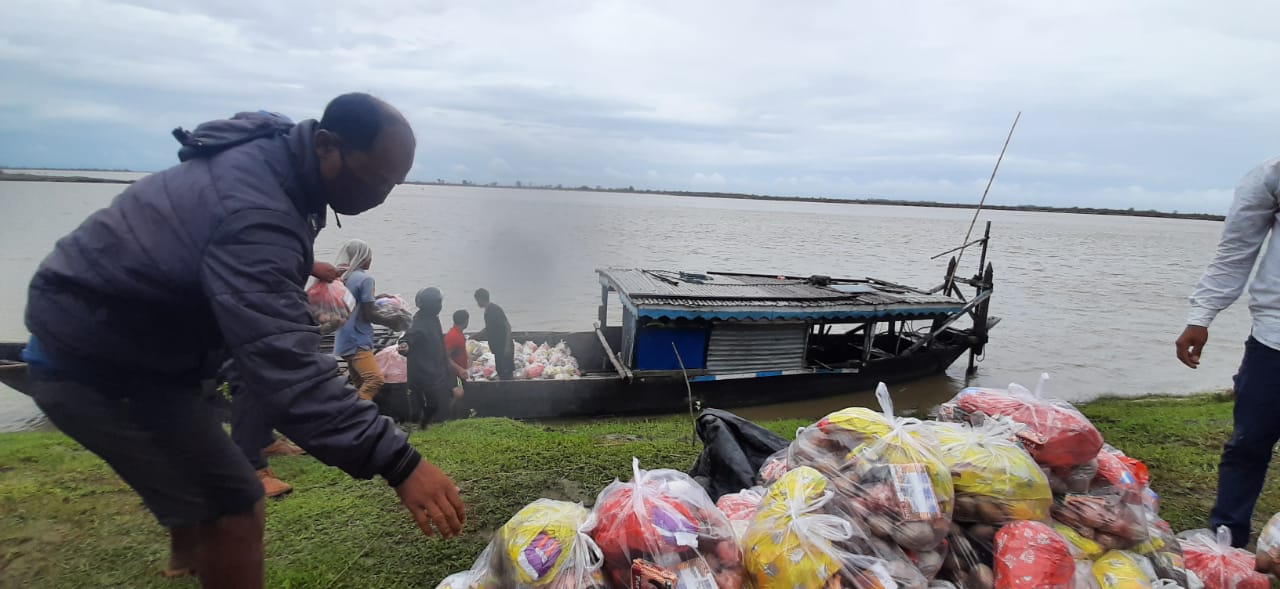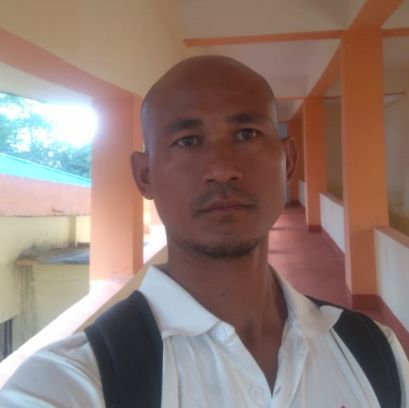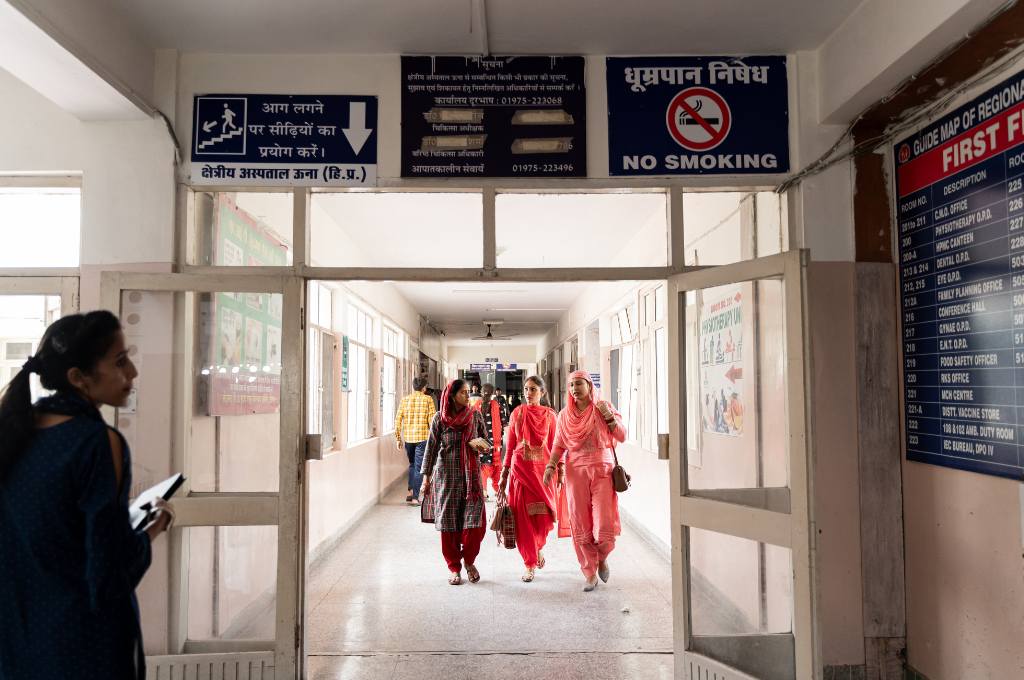Read the Assamese version of this article here.
My name is Ranjit Doley and I work at Ayang Trust, a nonprofit in Assam’s Majuli district that works with marginalised communities in the areas of education, healthcare, and livelihoods. ‘Ayang’, which translates to ‘love’ in the local Mising language, was set up in November 2017 in Gormur village.
Majuli is the world’s largest river island, and is surrounded by the Brahmaputra and some its tributaries. This unique location is also what threatens the island’s existence. Over the last 50 years, the island has shrunk to less than half its size due to annually recurring floods and flood-induced erosion.
This year, the annual deluge coupled with the outbreak of COVID-19 and African Swine Fever (ASF) has had a devastating impact on livelihoods. A majority of Majuli’s population—comprising of different marginalised tribes—is dependent on agriculture and pig farming as their main sources of income.
Prior to the outbreak of COVID-19, we, at Ayang, would focus on providing quality education to children across the district by collaborating with the public schools. However, with the schools closed, we are now focused on helping the community to overcome the crisis. This includes activities such as delivering essentials including rice, mustard oil, and fruits, or constructing toilets. We also collect demographic data from affected villages and plan relief operations for those in need.
6.00 AM: I start my day by reviewing the schedule of the day’s activities, which we prepare the previous evening. These days, our schedule mostly includes field visits to the worst-hit areas of Majuli. If we have a field visit scheduled for the day, all nine members of the team, including myself, arrive at the office for a thorough briefing on the day’s visit. Today, we are visiting Salmora, which is on the south-eastern corner of the island, located at a distance of about 25 kilometres from our office at Gormur. Salmora is one of the most severely affected villages in the district. Once geared up with relief material and other essentials, we leave on our motorbikes.
7.00 AM: It usually takes around half an hour to reach Salmora, but due to the floods, it takes us an hour. Upon arriving, we meet the gaon burha (village head) to gather information on the living conditions of the villagers and collect demographic data. If the gaon burha is not available, we seek out the Panchayat ward member or the local Accredited Social Health Activist (ASHA). While talking to the gaon burha, we learn that there is a sizeable population of potters at Salmora who have been struggling to sell their products in the market due to the months-long COVID-19-induced lockdown and the floods. Salmora is one of the largest potter villages in Assam, and its pottery is entirely handcrafted, without any use of a potter’s wheel.
We also learn that the floods have led to a shortage of safe drinking water in the village.
We also learn that the floods have led to a shortage of safe drinking water in the village. Although almost every household has access to a hand pump, it’s unsafe to consume unfiltered water sourced directly from the hand pump especially during floods. To address this issue, the government has been providing a powdered solution which is supposed to purify the water.

This year, the annual deluge coupled with the outbreak of COVID-19 and African Swine Fever (ASF) has had a devastating impact on the livelihoods of the majority of Majuli’s population. | Picture courtesy: Ayang Trust
10.00 AM: We take a break for breakfast at a small eatery in the village and review what we have learnt through our conversation with the gaon burha. We then decide to meet some of the potters and other local residents to assess their situation as well as distribute essentials such as rice, mustard oil, and so on, to those in need.
1.00 PM: After collecting the necessary data and distributing the relief material, we head back to our office.
2.00 PM: Upon reaching the office, we go through the information and statements that we have collected and categorise the population in Salmora into families or individuals holding Below Poverty Line (BPL) cards and those having government jobs. We then discuss ways in which we could help those in need. When we come across issues faced by the villagers that are beyond our area of expertise or capability, we decide to take them up with the authorities, such as the village development committee members.
We also help the villagers and the village development committee members to write applications addressed to higher authorities.
We typically share the data that we collect with these authorities so that they also have a clear understanding of the issues and can address them. Additionally, we help the villagers and the village development committee members to write applications addressed to higher authorities, as well as guide them to the right person they can approach for a particular problem. For instance, if a particular issue falls within the District Collector’s (DC) jurisdiction, then we help them write an application to the DC.
4.30 PM: As we are about to wrap up the day’s work and prepare a schedule for the next day, we hear that a fire has broken out at a nearby house. We rush to the spot and find that the villagers have managed to rescue the family but the house has been razed to the ground. We help the locals to douse the fire before it engulfs the agricultural land with standing crop that is close to the house.
7.00 PM: Once the fire is brought under control, we return to the office and hold a meeting to discuss how we can help the family. We decide to provide them with some clothing as well as tin sheets that can be used to build a new house.
8.00 PM: As the day comes to an end, we prepare a schedule for the next day.
I have always wanted to serve my community and working at Ayang has given me this opportunity. While COVID-19, ASF, and the waves of flooding have made it challenging for us to do our job, they haven’t dampened our spirits.
As told to IDR.
—
Know more
- Read more about the flood situation in Assam.
- Learn more about the impact of flood-induced erosion on Majuli’s geography.
Do more
- To connect with or learn more about Ayang Trust and their work, write to [email protected].




